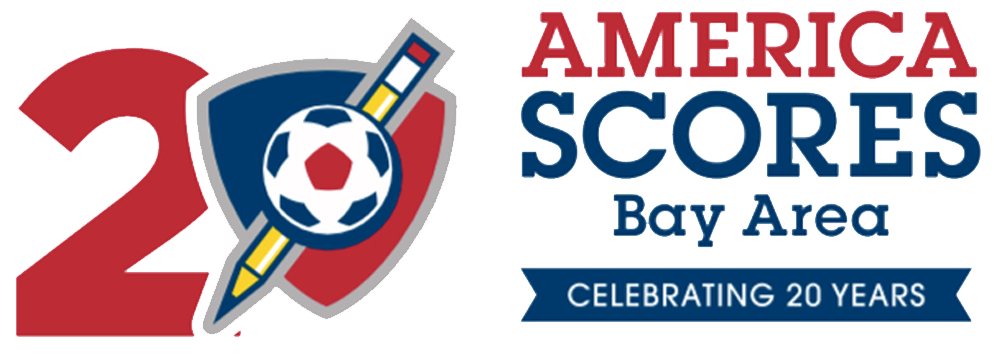Carlos Santiago Yanzon
We talked to Carlos Santiago Yanzon from the Argentinian coastal city of Mar del Plata, where he was taking advantage of the flexibility of remote work to be near the beach for a week. A MuleSoft employee based in Buenos Aires, Carlos is part of the global tech team working on a comprehensive app for SCORES coaches.
Carlos first learned of the SCORES tech team through his MuleSoft manager, Santosh Mankala, who was already contributing his technical experience and insight. Carlos is part of a team working on a new app designed for America SCORES coaches.
What’s been your experience as a tech volunteer?
Because Mulesoft is part of Salesforce, we have the 1-1-1 philanthropic model, where the company dedicates 1% of its equity, 1% of its product, and 1% of employees' time back to the community. Once you get into Salesforce, you realize it’s not a slogan. Nobody forces you to participate, but we all encourage each other to get involved. We get almost 60 hours of paid time for volunteering plus the decision-making power to choose how to use that time. You get to do something new, different from your regular work. You learn, meet new people, and realize that doing volunteer work is good for your soul. You start to absorb that culture of giving back. It’s contagious! It’s a way of giving, and it’s beautiful.
Tell us a bit more about the Coach App?
The app provides coaches tools to allow them to be fully present at their practices and matches. The goal is to streamline the administrative task loads (especially around attendance and registration) and to reduce coaches’ cognitive workloads. A coach can quickly scan QR codes on their players’ badges to know who’s come to a practice or a game and who hasn’t. They can easily access an updated registry to communicate with the players’ parents for any need, upload their practice plans, and be more organized and efficient.
What was the development process for the Coach App?
Pete Swearengen, SCORES CTO, described the problems that SCORES wanted to solve. After discussing our objectives, we decided to build a mobile app for the coaches and some platforms for the whole organization. We’re all working on different components. I was assigned development. My colleague Archana Patel focused on the process of synchronizing the data as it flowed from the field to the backend database. Santosh was able to help with ideas, organizing information, and big picture thinking. We started meeting more frequently to share files and discuss our own progress as we built the foundation. Everything worked really smoothly. When people want to work together and you create that synergy, it’s easy.
What do you gain from working on a team with people spread around the world? Your SCORES team spans Argentina, India, San Francisco, and New Zealand.
It’s been a really good learning experience, especially in communication. Everyone understands things differently, so you need to learn to think from other people’s shoes when you’re working together. Argentinians tell a whole story, while Americans get straight to the point! I’ve been able to break through barriers I thought existed between people from different countries. I realized that frontiers don’t matter so much if you have a common goal.
I’ve also learned a lot on the technological side. Building an app was a dream I’d had since my teenage years. This is the first app I’ve ever officially launched, so it was a big milestone for me.
When we first started, I was just starting my career at Salesforce and we were in the middle of lockdown. So even though the world had stopped, we were still moving forward and helping people. I realized you can help others even if you’re thousands of kilometers away.
What’s been different about working on the Coach App compared to your regular job?
I’ve gotten a chance to work on technology that’s new to me and there’s lots of flexibility, especially in terms of when I work. So if it’s Friday night and I’ve got nothing to do, I can be coding at 2:00 am.
The main change though is that I have so much more interaction with the people who are going to actually use the app – the coaches. Having a coach on a Zoom screen across from me using the app that I built is really great. You can see what they see – it’s just not the same as when someone tries to translate that to you. When you’re building things for other people, you need to stand in their shoes, because they’re the ones that are going to use the product.
The coaches are really good people. They’re so committed to what they do, and they really love the kids they’re coaching. And though they weren’t trained in technology, they really wanted to learn and they gave us great feedback in the development process. My main priority in this work is not simply to make something that works well and efficiently but to make the life of another person easier. You can make such a big impact.
What was it about America SCORES that caught your attention?
I really like the poetry part. I’ve played instruments for most of my life, and I’m really into music. Poetry seems to me like a fun piece of music. I was amazed by how SCORES was able to put these two things together that you wouldn’t necessarily think to put together. In soccer, you need to be 100% on – running, paying attention, thinking strategically. And in poetry, you sit down and let your ideas and imagination flow. And the kids are into it! I wasn’t expecting them to love poetry so much, then you see them learning and creating poetry, and it’s beautiful.

